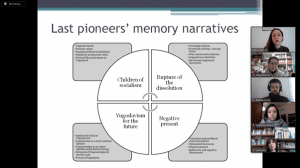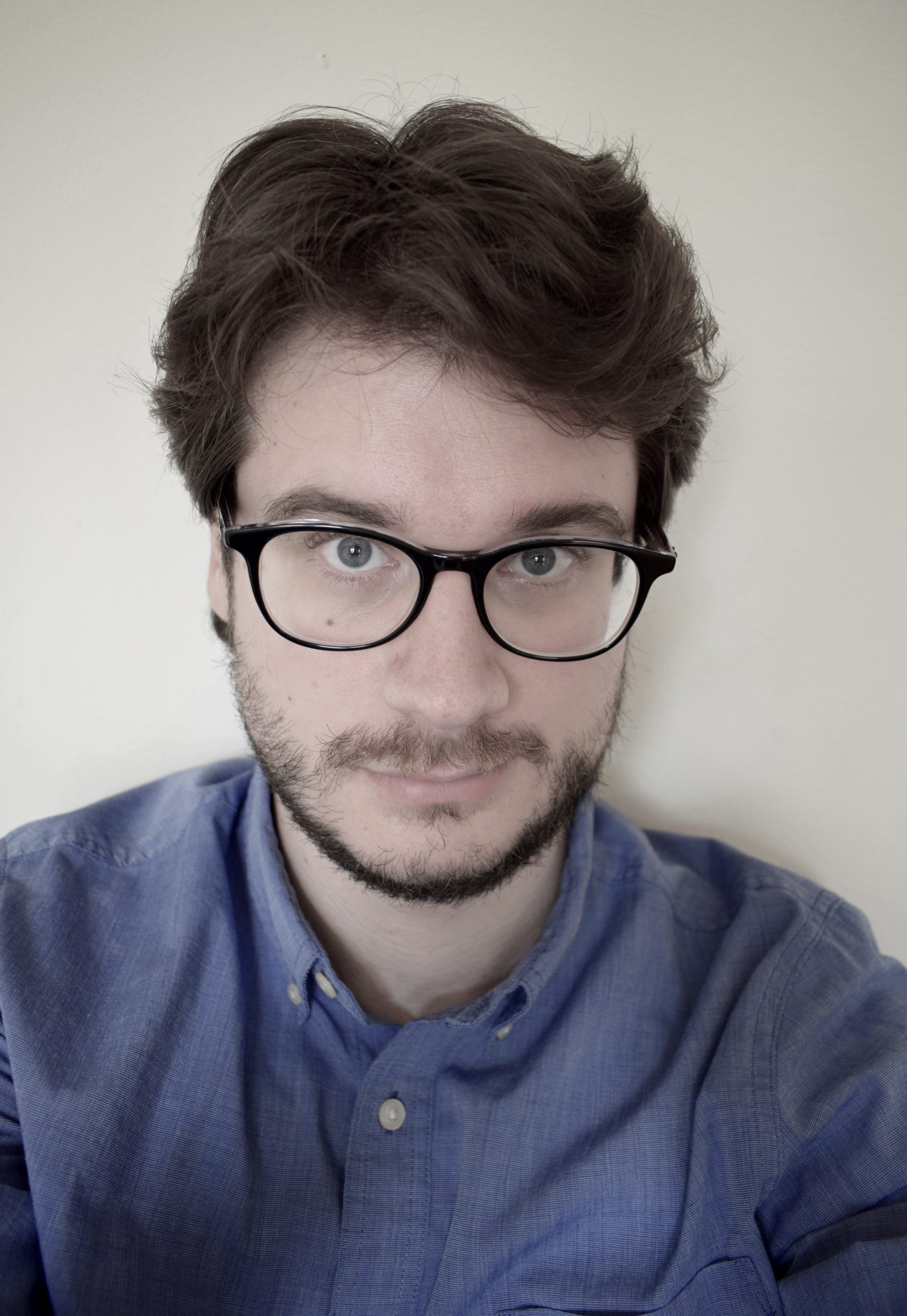On Thursday, December 3rd, we hosted CAS SEE Weekly Seminar with Milica Popović, presented by Filip Balunović. The seminar is entitled „Memories as resistance strategies and the use of Yugonostalgia – the case of the (post)Yugoslav political actors: the last pioneers“.
Embracing the social-constructivist concept of the past, her research takes an interdisciplinary approach to nostalgia, bringing together political science and cultural memory studies. With the aim to answer the main research question on the meaning of Yugonostalgia for politically active last pioneers and its reflection in their politics; her thesis is based on extensive research of the narratives of the generation of the last pioneers (born between 1974 and 1982), in three (post)Yugoslav countries: Slovenia, Croatia and Serbia. Avoiding methodological nationalism (Wimmer and Schiller, 2003) and implementing Constructivist Grounded Theory in data analysis (Charmaz 2004), through political ethnography, in-depth interviews, and participant observation, in 2017 and 2018, Milica Popović interviewed 62 political actors across the political spectrum.
In her research, she argues that Yugonostalgia of the last pioneers primarily serves the purpose of resisting the imposed political and personal discontinuity, becoming a collective and a political phenomenon. Generationally changing the location, it finds itself engendering the political potential, notably for the new left wing movements and political parties. Nostalgia forges generational communities who are transforming into political generations; transforming the memory of the Yugoslav cause, into a memory with a (post)Yugoslav cause (Rigney, 2016).
Instead of discarding nostalgia as apolitical, we need to reinstate it as the political and thus expand our own understanding of the political field in the 21st century. The (post)Yugoslav memory narratives of the last pioneers give us an insight into new and unexplored political imaginaries of the (post)Yugoslav space that could be summarized as “No state, no nation – one space, one identity”.
Milica Popović is a PhD candidate at the Interdisciplinary doctoral programme in Balkan studies at the Faculty of Social Sciences, University of Ljubljana, under the mentorship of Professor Mitja Velikonja and at the Doctoral School of Sciences Po Paris, affiliated with CERI (Center for International Studies), under the mentorship of Professor Jacques Rupnik. The title of her thesis is “(Post)Yugoslav memories as resistance strategies – Understanding the political significance of Yugonostalgia”. Milica is currently a CEEPUS Visiting Fellow at the Institute of Social and Cultural Anthropology at the University of Vienna.
She holds a Bachelor’s degree in Law from University of Belgrade and a Master degree in Political Science from University Paris 2 Panthéon-Assas. She is interested in transcultural memory and transgenerational transmission of memory within post-socialist contexts and the influences of memory and nostalgia onto the political identities of political and social elites in (post)Yugoslav countries; as well as representation and discursive uses of nostalgia in the political field. She has been a lecturer at Sciences Po Paris (Introduction to Political Science and Ethics of War). Since 2020, Milica has been a member of the Editorial Board of Balkanologie and a member of the Administrative Board of SFERES – French Association for Russian and East European Studies in Social Sciences. She is also an active member of IMNN – International Media and Nostalgia Network and MSA – Memory Studies Association.
Watch the CAS SEE Weekly Seminar with Milica Popović:






